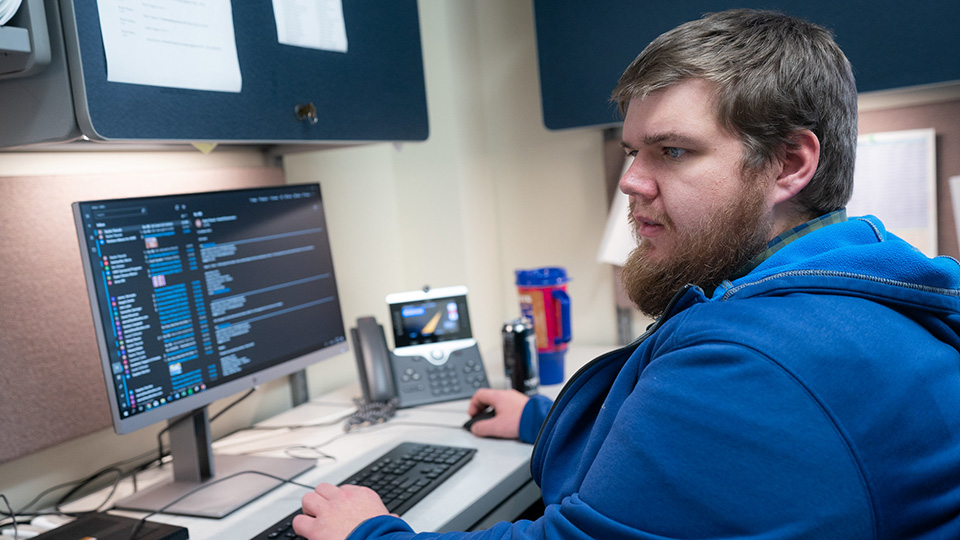An assistant professor at the University of Wisconsin Oshkosh is playing a key role in a research project that could result in better day-to-day lives for many residents in Outagamie County.
Addressing Front-End System Inequities To Promote Change is one of 25 projects underway nationwide that make up the 2023 cohort of the Catalyst Grant Program, a collaboration from the Urban Institute and the Microsoft Justice Reform Initiative. The program supports projects designed to leverage data and technology to advance racial equity in policing, prosecution and prevention.
Matt Richie, a member of the UW Oshkosh criminal justice faculty and a 2012 UWO graduate, helped bring together the Fox Valley nonprofit People of Progression and Outagamie County law enforcement to get the project off the ground.
People of Progression, a Black-led organization that launched in 2020, offers advocacy, support and other resources for the local Black community. The grant supports an effort that will include both a deep dive into law enforcement data and input from the community in the form of focus groups and surveys.
“I was brought on to do the data,” Richie said. “They had this idea that they wanted to look at police data and they wanted to do listening sessions and surveys in the community. So when I heard this idea we sort of worked it so it would be this mixed methods, qualitative-quantitative study that would look at the disparities in Outagamie County.”
Richie collected the calls for service data for all of Outagamie County in 2021—meaning information related to more than 200,000 calls to police. His work includes a close look at suspicious person calls made to police and their outcomes.
“One thing I keep hearing from friends that are officers, colleagues that are officers, former students that are officers is this notion that a lot of calls on suspicious people turn out to not be that suspicious—things like a guy is standing outside Pick N Save and he looks suspicious, but the guy is just waiting for the bus,” Richie said. “All of these really strange instances of hopefully well-meaning people calling the cops on minority youth and adults that just seem out of place.”
Grand Chute Police Chief Greg Peterson—who has helped Richie with research in the past—said for several years it’s been his opinion that interactions between citizens and police are often influenced by explicit or implicit biases by the person making the report.
“In an effort to avoid bias by proxy, we have created a department policy that requires officers to evaluate the nature and circumstances of each call for service to determine if they exhibit indicators of potential reporting bias,” Peterson said. “Unfortunately, my opinions are based largely on anecdotal or experiential information. When Professor Richie shared his idea for this research project, I was eager to participate and learn whether my viewpoint can be empirically verified.”
The service call data Richie obtained doesn’t include information on the race or ethnicity of anyone involved, so a qualitative approach also is necessary. That’s why members of the research team will distribute surveys and hold listening sessions to learn if certain slices of the public are more often the subject of these calls. As Richie put it, he’s hoping to be able to triangulate what’s learned from the data and what’s learned from the community input.
“What I really wanted to find out with this is how can we drill down to figure out the scope and extent of racial disparities in Outagamie County and how can we solve some of these problems, how can we educate the public to not be calling all the time on the kid waiting for the bus or the kid waiting outside Pick N Save for a ride,” he said. “That is my real concern.”
Listening sessions will be held in late summer or early fall and give residents an opportunity to talk about their experiences. Then by December—with the takeaways from the data, surveys and listening sessions—there will be a full report on the findings, which could inform law enforcement and community behaviors and strategies moving forward.
“We want to know the good, the bad and the ugly,” Richie said. “That’s how we make things better.”
Learn more:

